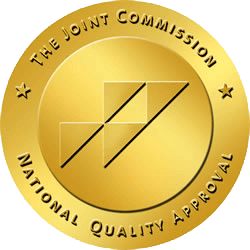Ritalin is a brand name for the drug methylphenidate, which is prescribed to treat narcolepsy and attention deficit hyperactivity disorder, or ADHD. A central nervous system stimulant, Ritalin works by increasing the activity of the neurotransmitter dopamine, which is associated with pleasure and wakefulness. When taken as directed by a physician, Ritalin raises dopamine levels slowly over time. When abused, such as when it’s taken in doses higher than prescribed or when pills are crushed and snorted, Ritalin can produce effects similar to other stimulants like methamphetamine and cocaine, causing exhilaration, excitation and feelings of euphoria.
Why Young People Abuse Ritalin
Some young people abuse Ritalin to help improve concentration and academic performance, although research published in the journal Brain and Behavior shows that the stimulants prescribed for people with ADHD do very little to improve the cognitive performance of those without ADHD. Since Ritalin is known to suppress the appetite, some teens use it to lose weight, while others use it recreationally for the purpose of getting high.
Health Effects of Ritalin Abuse
Many teenagers believe that abusing prescription medications is safer than using illegal drugs, but this simply isn’t true. Ritalin abuse in particular can have devastating health effects, including psychosis, myocardial infarction and, in rare cases, sudden death. The number of emergency room visits involving Ritalin and other ADHD medications increased from 13,379 in 2005 to 31,244 in 2010. This increase is partly due to the dramatic rise in prescriptions being written for Ritalin as well as an increase in the abuse of this drug over the past decade. The side effects of Ritalin when taken as directed may include nervousness, nausea, loss of appetite and headache. When taken in doses higher than prescribed or by someone without the low dopamine activity that characterizes ADHD, side effects may include muscle twitching, tremors, irregular heartbeat, seizures or loss of consciousness.
Ritalin Addiction and Dependence
Ritalin abuse typically leads to a buildup of tolerance, which means that as the brain changes the activity level of dopamine and other neurotransmitters in order to compensate for the presence of Ritalin, it takes increasingly higher doses to get the desired effects. With higher doses comes an increased risk of developing a physical dependence on Ritalin, which is characterized by the onset of withdrawal symptoms when the drug is withheld. Addiction is characterized by the compulsive use of a drug despite negative consequences. Young people who are addicted to Ritalin may find it extremely difficult, if not impossible, to stop using it without professional help, especially if a dependence co-occurs with the addiction and causes withdrawal symptoms, which may include intense cravings, exhaustion and severe depression that’s accompanied by suicidal thoughts. Due to these negative withdrawal symptoms, the National Library of Medicine warns against quitting Ritalin cold-turkey and instead recommends working with a physician to taper off the doses slowly over time to prevent these symptoms.
Treating Addiction and Dependence
Due to the marked changes in brain function that affect thought and behavior, good intentions and willpower alone are rarely enough to overcome a drug addiction. If your child is dependent on Ritalin, medical detox offered through a high-quality treatment program is essential for successful withdrawal. This detox process is supervised by medical personnel and involves administering medications as needed to help alleviate the intensity of withdrawal symptoms. While medical detox takes care of the physical dependence, it doesn’t address the addiction. Treating an addiction should involve various therapies that address the complex underlying issues behind the abuse and addiction. Through cognitive behavioral therapy, family therapy and other treatment therapies, your child will learn to identify and change harmful thought and behavior patterns as well as develop coping skills to effectively deal with cravings, triggers and stress. Without treatment, Ritalin abuse and addiction will likely only get worse. A high-quality adolescent treatment program that takes a holistic approach to treatment and recovery is essential for helping your child beat an addiction to Ritalin or curb chronic abuse of the drug. Professional treatment improves your child’s chances for long-term, successful recovery from a drug addiction and can lead to a higher level of productivity and a better quality of life. To learn more about the dangers of Ritalin abuse and how we can help you overcome addiction, give us a call at 877-466-0620.


